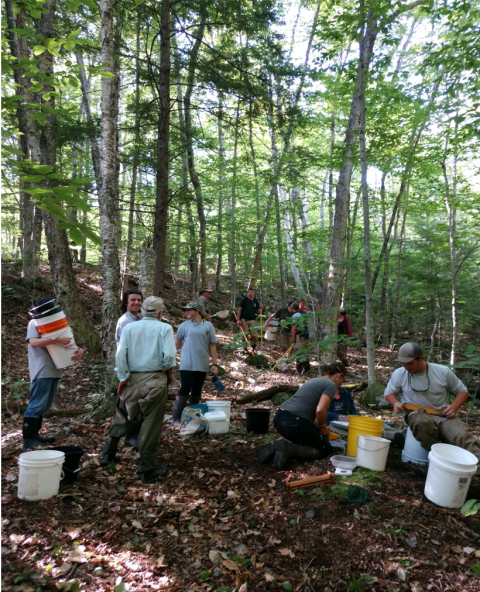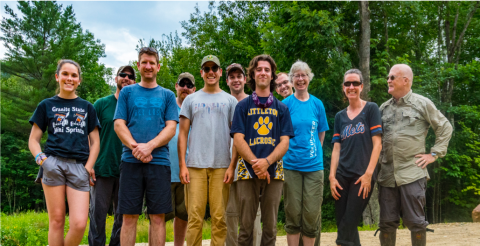
The Beebe River Long Term Environmental Monitoring and Education Project continues on, from its inception in the summer of 2016. Our team consists of graduate and undergraduate students in biology, environmental science & policy, and biochemistry, and several PSU alums. Our work focuses on an integrative view of this watershed – an approach we like to call from genes to GIS.
The Beebe River Long Term Environmental Monitoring and Education Project continues on, from its inception in the summer of 2016. Our team consists of graduate and undergraduate students in biology, environmental science & policy, and biochemistry, and several PSU alums. Our work focuses on an integrative view of this watershed – an approach we like to call from genes to GIS.

We spend each spring/summer season (after the spring semester wraps up) out on the river, working as a multidisciplinary team and partnering with groups outside of PSU. In the field, we continuously monitor stream temperature and flow, and sample aquatic macroinvertebrates (mayflies, stoneflies, and caddisflies dominate our samples). Once per month from May until September we use electrofishing to collect wild brook trout with our partners: NH Fish and Game and the Pemigewasset Chapter of Trout Unlimited. During these sampling events, we collect wild brook trout and measure body size, scrape scales to age individuals, clip the small adipose fin of each individual to better create a genetic profile/genotype, and sample gill filaments to assay levels of stress proteins. We are interested in understanding wild brook trout demographics, growth, movement, stress levels, genetic structure, and more with these data. Our aim is to tie together these disparate datasets and bridge across different scales to better understand and protect wild brook trout for future generations.

To learn more about our work – reach out to Brigid O’Donnell at bcodonnell@plymouth.edu or Amy Villamagna at amvillamagna@plymouth.edu

